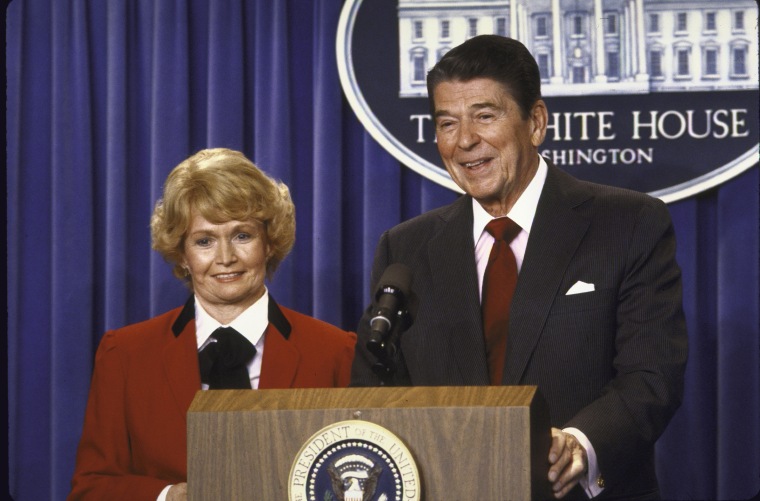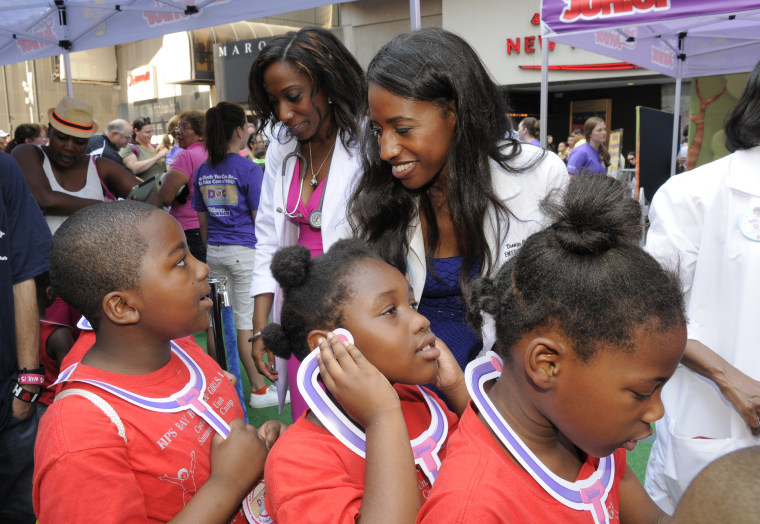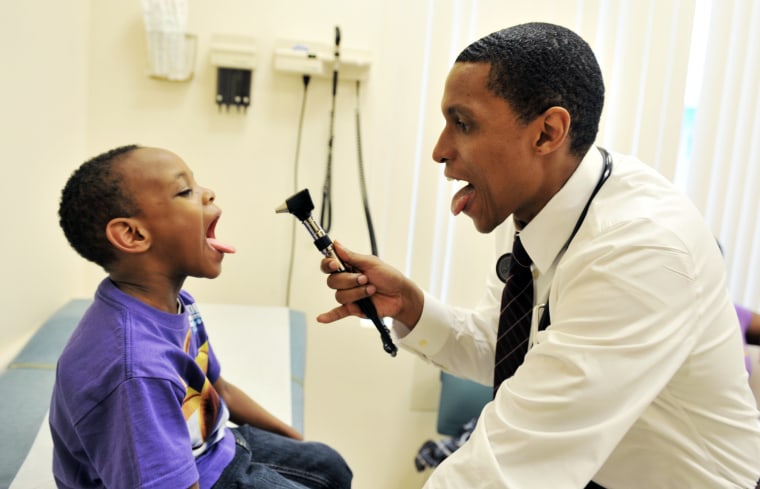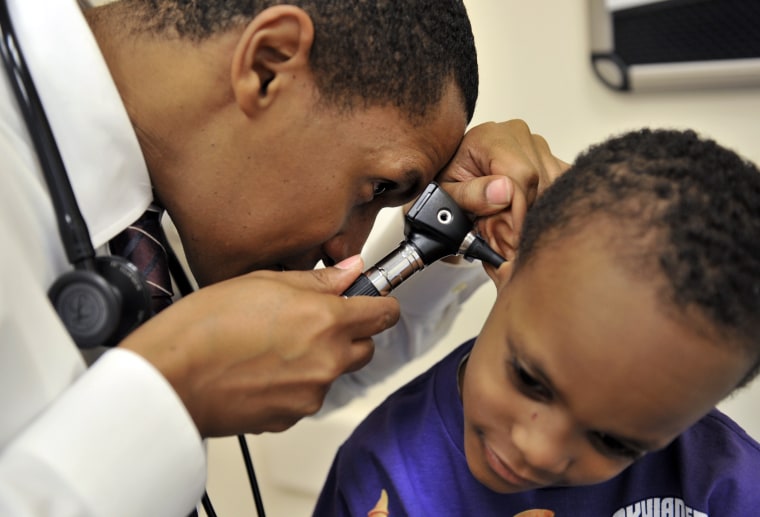This year is a big one for health equity and the policy discussion.
It is a milestone anniversary year for steps to improve parity and access in communities of color, marked by the 50th anniversary of President Lyndon B. Johnson signing Medicare and Medicaid into law this summer.
As we enter the first full year of implementation of the Affordable Care Act, the U.S. Census Bureau reports that the number of Americans with insurance coverage rose from 8 million in 2013 to 33 million last year. The numbers of African Americans who had health care coverage rose by four percent.
The big question is does policy really move the needle in improving health outcomes for people of color. The jury is out.
“Most Americans believe that we should all have the opportunity to live healthy lives. But few know that African Americans are living shorter lives and have a bigger health burden than their white counterparts.“
This year also marks the 30th anniversary of a little known health equity marker, the Heckler Report. I have been covering health disparities and health equity for over twenty years. Imagine my surprise when I heard that 2015 marks the 30th anniversary of the Heckler Report on Black and Minority Health.
While It has been billed as the game changer for the medical and public health communities in understanding that there are wide gaps between health outcomes for Blacks and their white counterparts, I had never heard of it.
In 1985, then Health and Human Services Secretary in the Reagan administration, Margaret M. Heckler convened the first group of experts to conduct a comprehensive study of the health status of minorities. When the report was released, it became a firing shot from the starter pistol, putting the health and wellbeing of Black Americans on the national stage for the first time.

Garth Graham, MD, MPH, is president of the Aetna Foundation, but he was previously the Deputy Secretary of Health and Human Services, heading up the Office of Minority Health in the Obama Administration. Dr. Graham says the report was the first of its kind to put a stake in measuring health disparities in this country and the report served as a call to action.
“Most Americans believe that we should all have the opportunity to live healthy lives,” said Dr. Graham. ”But few know that African Americans are living shorter lives and have a bigger health burden than their white counterparts.“
But like many policy initiatives in their infancy, Dr. Graham says that Congress supported the work, but didn't set aside any funding to implement programs.
But did the report make a real and sustainable difference? Thirty years later, as a journalist, I still write stories that start and end with “Blacks are more likely to die of…”
Daniel Dawes, the Executive Director, Government Relations, Policy and External Affairs at Morehouse School of Medicine, says it is important to remember that from a historical perspective, the Heckler Report was groundbreaking. "Up until 1985 there had not been anything that specifically addressed the wellbeing of Blacks in America since the Freedman’s Bureau Act of 1865, which was designed to address the needs of newly freed slaves after Emancipation,” explained Dawes.
The Heckler report helped people to understand the need for cultural competency, community engagement and overall health disparities and health equity. “It helped to make health a non-partisan issue,” continued Dawes.
RELATED: 'Fat Girl Running' Blogger Challenges Stereotypes Miles at a Time
But did the report make a real and sustainable difference? Thirty years later, as a journalist, I still write stories that start and end with “Blacks are more likely to die of…”
There have been some big wins at the policy level. Since the report was released a National Office of Minority Health has been established.
Ohio and Michigan were two of the first of nine states that have also established their own offices of minority health. There are many federal, state and local programs that work to increase access and awareness for health care for people of color. But they are underfunded and vulnerable during budget appropriations.
We’ve made some significant progress in the last 30 years.
According to Health & Human Services (HHS) Secretary Sylvia Burwell, there have been some significant gains since the Heckler Task Force. “Since 1980, we’ve cut heart disease related deaths among African-Americans by half,” said Burwell.
She added, “teen pregnancy rates for minority girls have decreased dramatically, falling around 50 to 60 percent for all teens of color.”
“Start organizing with your neighbors and be the squeaky wheel. If you want a healthier community, you have to fight for it.”
Most experts agree that one of the most significant policies implemented since the Heckler Report is the Affordable Care Act.
According to Secretary Burwell, during the last open enrollment, nearly 11.7 million Americans signed up or were re-enrolled through the Health Insurance Marketplace and about 16.4 million uninsured people have gained health coverage. “That includes 2.3 million African-Americans and 4.2 million Hispanics. That’s the largest reduction of uninsured adults in four decades.” said Secretary Burwell.
But as the demand for access to quality care increases, there still remains a significant challenge in getting Black health care providers into the system of care. “What we saw from the Heckler Report was a charge to increase the diversity of health care professionals," said Dr. Graham. "There has been a significant number of African Americans entering into health professions.”
One of the challenges has been what public health professionals call the broken pipeline.
“We have increased the opportunities for people who have been able to take part in research and education, but If we want to make a real impact on the numbers we need to start the process earlier,” said Dr. Graham.

“We have to get more boys and girls in science and technology in the earlier stages in the educational pipeline and get them to graduate medical school,” he continued.
Interestingly, while the numbers of African American doctors has increased since 1985, they make up only 4 percent of doctors in this country.
“There has not been a strong enough political will to move the needle on health equity and bridging the disparities,” Dr. Smedley says.
Most experts agree that sustained funding for programs, policies and outreach are needed to move the needle on disparities in a significant way.
Brian Smedley, Ph.D, co-founder and executive director of the National Collaborative for Health Equity says the answer isn’t an easy one. “If you ask people in communities, it is hard to see how they would see and feel the change.”
Dr. Smedley says that historically, even since the Heckler Report, Black communities have not really been a priority.
“Start organizing with your neighbors and be the squeaky wheel. If you want a healthier community, you have to fight for it,” said Dr. Smedley. “A politically organized and healthy community is a healthy community at the end of the day. Get organized and demand that we address injustice."
And while Dr. Smedley believes that your zip code makes a big impact on your health status he says, “it is important that we walk a fine line when we talk about how place matters. We have to be careful not to stigmatize,” because black communities symbolize strength and resilience.

SIDEBAR: THE HECKLER REPORTIt’s been 30 years since the Heckler Report pointed to the disparities in health between African Americans and their white counterparts. In some ways things have improved but many have stayed the sameCANCERAccording to the American Cancer Society, overall, cancer death rates for African Americans have dropped. Yet cancer death rates for black men are 33 percent higher than their white male counterparts. And for black women, the death rates are 16 percent higher.DIABETES13.2 percent of all African Americans age 20 and older are living with diabetes. African Americans are 70 percent times more likely to have diabetes than whites.HYPERTENSION41 percent of African Americans have hypertension compared to 27 percent of whites.CARDIOVASCULAR DISEASE AND STROKECardiovascular disease and stroke are the leading causes of death for African Americans.
